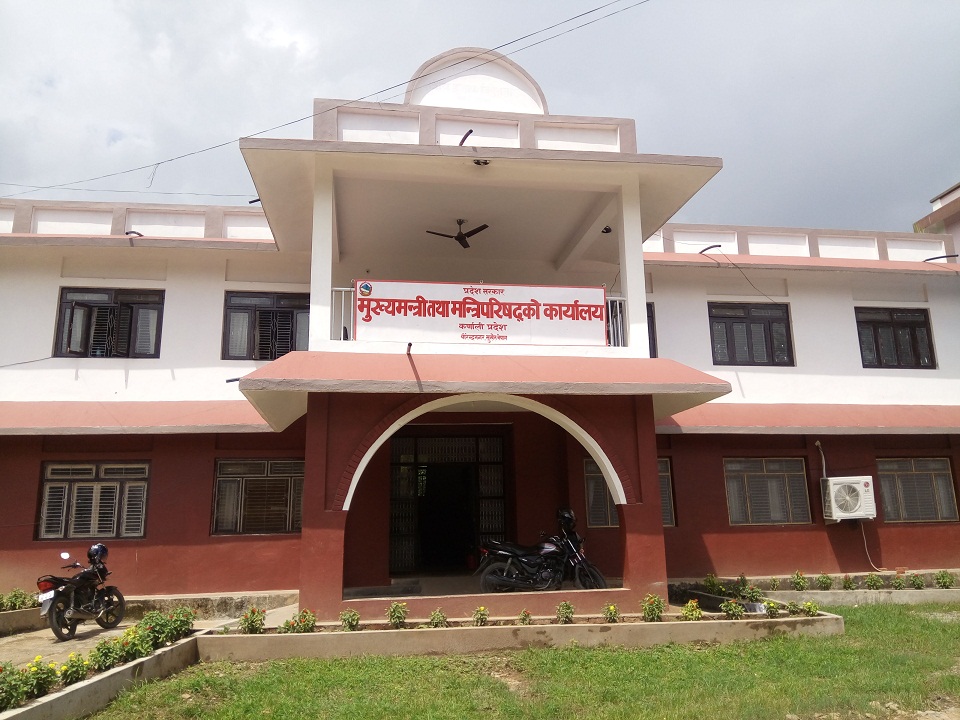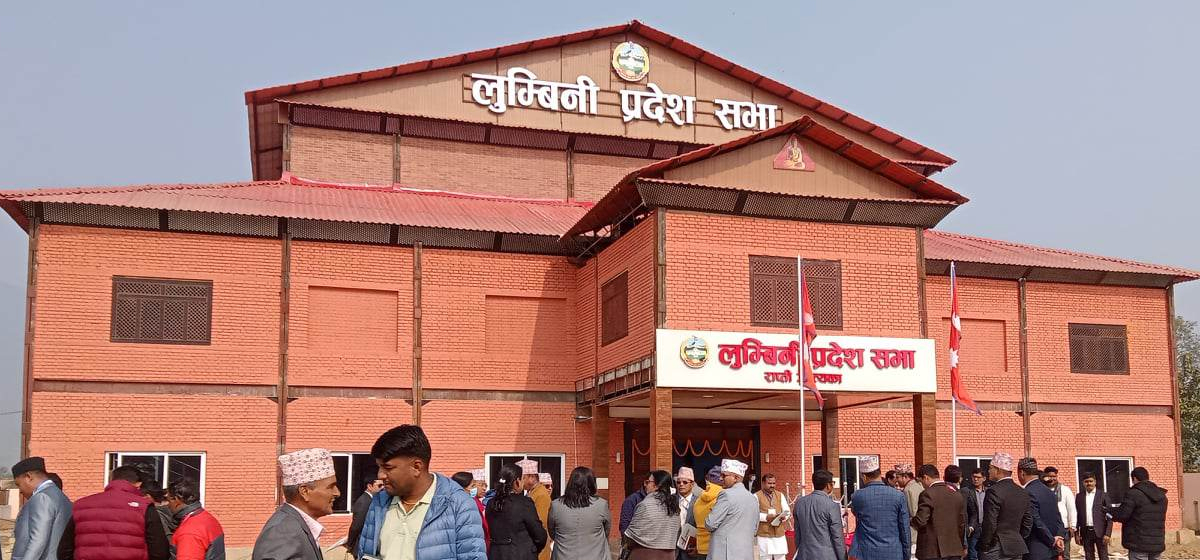
OR
Government adopting austerity plan
Published On: March 8, 2018 09:26 AM NPT By: Republica | @RepublicaNepal

KATHMANDU, March 7: In a bid to address unlimited responsibilities emerged with the implementation of the federalism, the government is to cut down recurrent expenses and adopt austerity policy on resource flow under capital spending.
At a programme organized here today to make public the mid-year review report of the budget of the fiscal year 2074-75, it was shared that the Ministry of Finance is planning to unveil austerity plan.
Addressing the programme, Finance Minister Dr Yubaraj Khatiwada said, "We are looking for high economic growth remaining under pressure of unlimited responsibilities. So, we need to be economic for this".
The government will come up with the plan to not transfer the budget appropriated for mandatory responsibilities including salary, allowance, water and electricity, communications bills, house rent, insurance, food and medicine purchase to recurrent expenses from now onward.
Likewise, the government would be tough on axing recurrent expenses on fuel, maintenance, office stationeries, miscellaneous, consultancy and visits and adopt a policy to not purchase additional computers, laptop, printer, furniture and vehicle for existing offices except the new ones.
Similarly, Finance Minister Dr Khatiwada directed Finance Secretary Shanker Adhikari to identify the purpose of the unused public money in different government accounts and arrange the transfer to the revenue accounts.
Secretary Adhikari said that the Ministry would request all agencies to not propose additional release for new projects and programmes.
The Finance Ministry is to lay its emphasis on the compliance of tax laws, control of revenue leakage and tax net widening.
Likewise, the remaining dues to be collected would be drawn soon by completing processes and the size of the budget for the upcoming fiscal year would be determined by confirming the source while the projects and programmes listed under the rights of the local level would be identified and budget would be handed over.
The practice of low budget allocation to the projects of national pride and prioritized mega projects would be ended and the social security programme would be carried out in an integrated manner by ending duplication.
Loss in the reserve fund which exceeded Rs 48.61 billion till the end of the last fiscal year remains a major challenge to the government.
Likewise, massive pressure on demands for non-budgetary and multilateral agencies failing to meet their pledge to provide Rs 32.97 billion budget remained another problem of the finance ministry.
The Finance Ministry has expected that the around 85 per cent of the total Rs 1278 billion budget is expected to spend.
Of the total expenditure, Rs 738 billion would be the current expenditure while Rs 234 billion would be the capital expenditure. Likewise, Rs 109 billion would be spent for financial management.
RSS
You May Like This

Province 2 government unveils 100-day action plan
JANAKPURDHAM, March 27: Chief Minister of Province 2, Lalbabu Raut, today unveiled the government's 100-day action plan which aims to... Read More...

Government to prepare a master plan to bring disabled to school
KATHMANDU, Dec 30: The government has been working to prepare a master plan aimed at bringing the children with physical... Read More...




Just In
- NEPSE loses 3.24 points, while daily turnover inclines to Rs 2.36 billion
- Pak Embassy awards scholarships to 180 Nepali students
- President Paudel approves mobilization of army personnel for by-elections security
- Bhajang and Ilam by-elections: 69 polling stations classified as ‘highly sensitive’
- Karnali CM Kandel secures vote of confidence
- National Youth Scientists Conference to be organized in Surkhet
- Rautahat traders call for extended night market hours amid summer heat
- Resignation of JSP minister rejected in Lumbini province















Leave A Comment